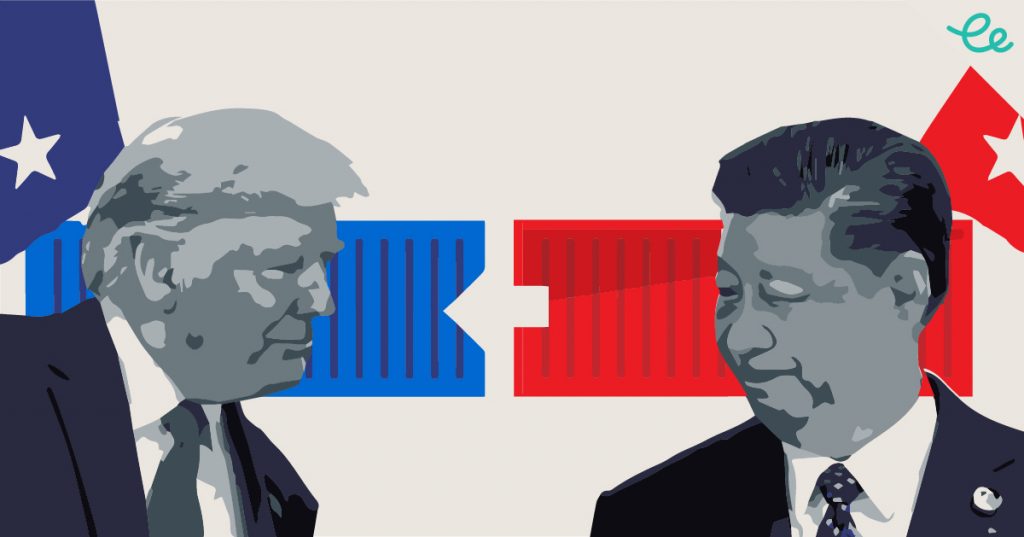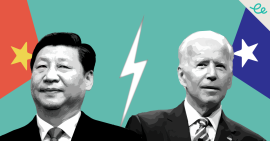The trade war between China and the USA escalated, even as negotiators from the two governments met in Washington to explore ways of defusing the major turmoil in US China relations. This article is a summary of important China US news in December 2018.
The US slapped tariffs on a further $16bn of Chinese imports , triggering reciprocal levies by Beijing. Two American airlines cut routes between China and the US, underscoring increasingly tough competition from state-backed Chinese rivals. China won’t resort to competitive currency devaluation, or to strong stimulus to support the slowing economy, said senior officials from the central bank. Their rare news conference followed a sharp drop in the yuan, that Trump claimed showed Beijing was deliberately manipulating its currency.
Trump signed a $716bn defence bill that included controls on government defence contracts with China’s ZTE Corp and Huawei Technologies Co. China’s defence ministry criticised the bill for being “filled with a cold-war mentality” that advocated confrontations between the two countries.
As the Philippine President publicly criticised China’s South China Sea policy, and warned of a “flashpoint” for conflict, China reported progress on a new satellite system for closer monitoring and tighter control, and the US Navy kept up “Freedom of Navigation” operations.
Amid the growing tensions, a delegation from China’s commerce ministry will head for Washington by late August for the first trade talks since the US imposed tariffs on Chinese goods. China’s central bank said it won’t use the yuan as a tool to cope with trade tensions with the US, and that it won’t conduct any “strong” economic stimulus.
Trade tensions with the US caused China’s yuan to lose ground against the dollar, but the People’s Bank of China has grown wary of traditional intervention – selling billions of dollar reserves to buy yuan – in favour of using foreign-exchange swaps to “guide expectations in the forward market”. The state re-introduced a requirement that financial institutions hold a deposit at the central bank when they purchase foreign exchange forward contracts for their clients. Beijing’s moves raised hopes the yuan will regain some of its recent sharp losses against the dollar and appreciate over the next year – if trade tensions between Washington and Beijing subside.
US Treasury officials reportedly held private talks with China’s Vice Premier Liu He on how to re-engage in negotiations. As Beijing’s language descended into accusations of blackmail, Congress passed a bill seeking to tighten US national-security reviews of existing Chinese deals and revamp controls on US technologies going abroad. Washington has issued restrictions on several Chinese companies, including state-owned military technology developers, for reasons of national security.








Comments are closed.